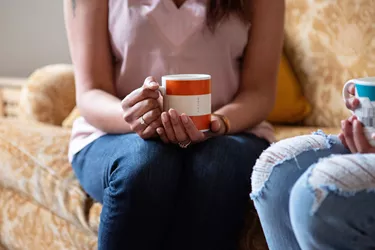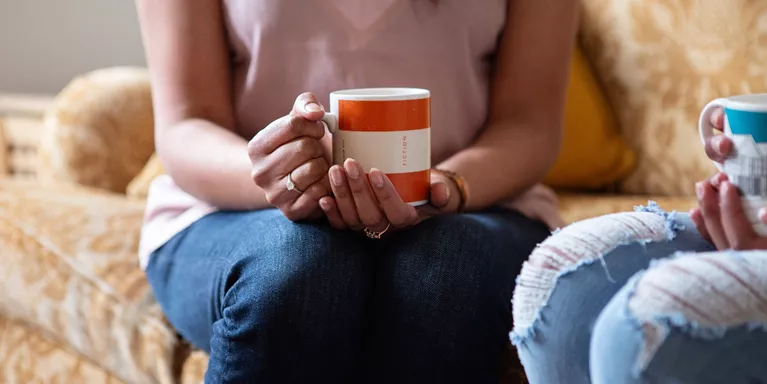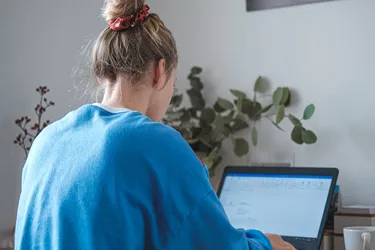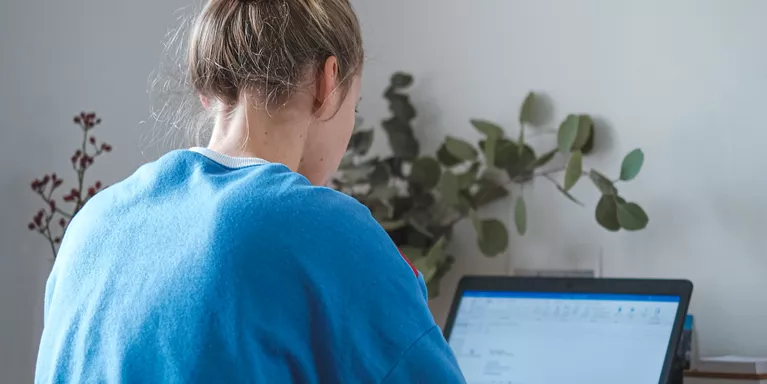Sexism, stigma and mental health; a study of one
Content warning: this blog mentions sexual assault
Ffion* explains how sexism and self-stigma has affected her mental health.
*Names have been changed.
I don’t think it’s possible for me to look at my mental health, and my deeply held self-stigma about it, without recognising the impact that sexism and misogyny has had on me in my lifetime.
I mean, I think I was probably a sensitive child and always destined to feel deeply, but I don’t believe that my feelings of anxiety and periods of depression are ‘just’ a biological malfunction. But it has taken years of therapy and, finally, in my late 30’s, an astute trauma informed therapist to help me recognise and accept this.
As an eight-year-old girl I witnessed the effect on my mum, of my dad’s long affair with our family friend. Her self-esteem disintegrated with the betrayal and I watched as she sought men to validate her, ultimately ending up in a coercive and controlling relationship with my stepdad. The lesson I learned from that as a child? That men have the power. This felt frightening but with no way to express it, those feelings were internalised and the foundations of my mental health issues were laid.
“I internalised my feelings again and this is when my anxiety really started to develop.”
A few years later and puberty set in. I’m appalled now when I think back at the sexism I had to deal with as a young teenager. Men catcalled me and my friends often, parents’ friends would comment on how I’d ‘filled out’, or compliment me on parts of my body that ‘men would like’. All a big laugh and a joke at a family BBQ or day at the beach while I politely laughed along, my stomach turning. My body seemed to be public property. From the unwanted grabs and gropes in the street or at a gig, or even in school, to the serious sexual assault I told nobody about. I internalised my feelings again and this is when my anxiety really started to develop. Overwhelming emotion that came out of nowhere but that I felt I had to hide. Looking back now, I see that feeling afraid is a very sensible emotion to have been experiencing, but at the time I just suppressed my feelings as much as possible in unhealthy ways. I think it was at this age I really damaged my ability to trust my instincts. So common was sexism and misogyny in British culture at that time, I thought I as the one who was overreacting, being a 'silly girl'.
So, when I turned up at my GP’s surgery aged 18 in floods of tears; the diagnosis in that 10 minute appointment was depression and I was given a prescription for antidepressants. More shame, piled on more shame. For the next 20 years I carried the shame of those early experiences and the shame of not being strong enough to deal with them. I have felt like an island my whole life and cried rivers at not being ‘normal’. Confident and open people mystified me. I’ve had times where things have been manageable, and times where they haven’t. Being a woman means dealing with casual sexism regularly. And for me, those small comments felt like visceral threats of sexual assault, they put me on edge each and every time. Also, moments of vulnerability can be particularly hard, for example the level of intimacy with strangers that’s involved in childbirth and the physical and emotional risks involved. However, therapy, a small group of close friends and medication have kept me functioning and moving forward. But it was three years ago when things started to really change for me.
I was at the lowest I had ever been, with my intrusive thoughts (flashing images of violence) haunting me at every opportunity. I was desperate for something to change and to feel better. I reached out to a new therapist who, in our first session asked me if I’d ever experienced anything that could be described as a sexual assault. I said “sort of”, explaining what had happened, and in that moment she managed to validate me in a way nobody had been able to before. In recognising the trauma and recognising the impact that assault can have on a person, she had put me on a path to recovery.
Three years later and I do still struggle, but not nearly as much. And I have started to open up, which is completely new for me.
“Once I discovered the role of shame in my mental health problems I realised how much I had been stigmatising myself for things that other people had done to me.”
Of course, my nervous system works overdrive. The sad reality is that women are still vulnerable to men in society now. And even everyday sexism can lead to poorer mental health. Understanding this has given me a different perspective on my mental health problems and the confidence to be open about how I’m feeling. Now I don’t blame myself, it’s freeing to just deal with the symptoms. I’ve found ways that help manage my anxiety when it’s difficult and be kind to myself when the depression creeps in. I’ve come to realise that I may be flawed, but so are the ways in which many girls and women are treated on a daily basis. And until this is resolved, many other girls will grow into women with an un-nameable fear ingrained into them too.


Information and support
When you’re living with a mental health problem, or supporting someone who is, having access to the right information - about a condition, treatment options, or practical issues - is vital. Visit our information pages to find out more.
Share your story with others
Blogs and stories can show that people with mental health problems are cared about, understood and listened to. We can use it to challenge the status quo and change attitudes.















